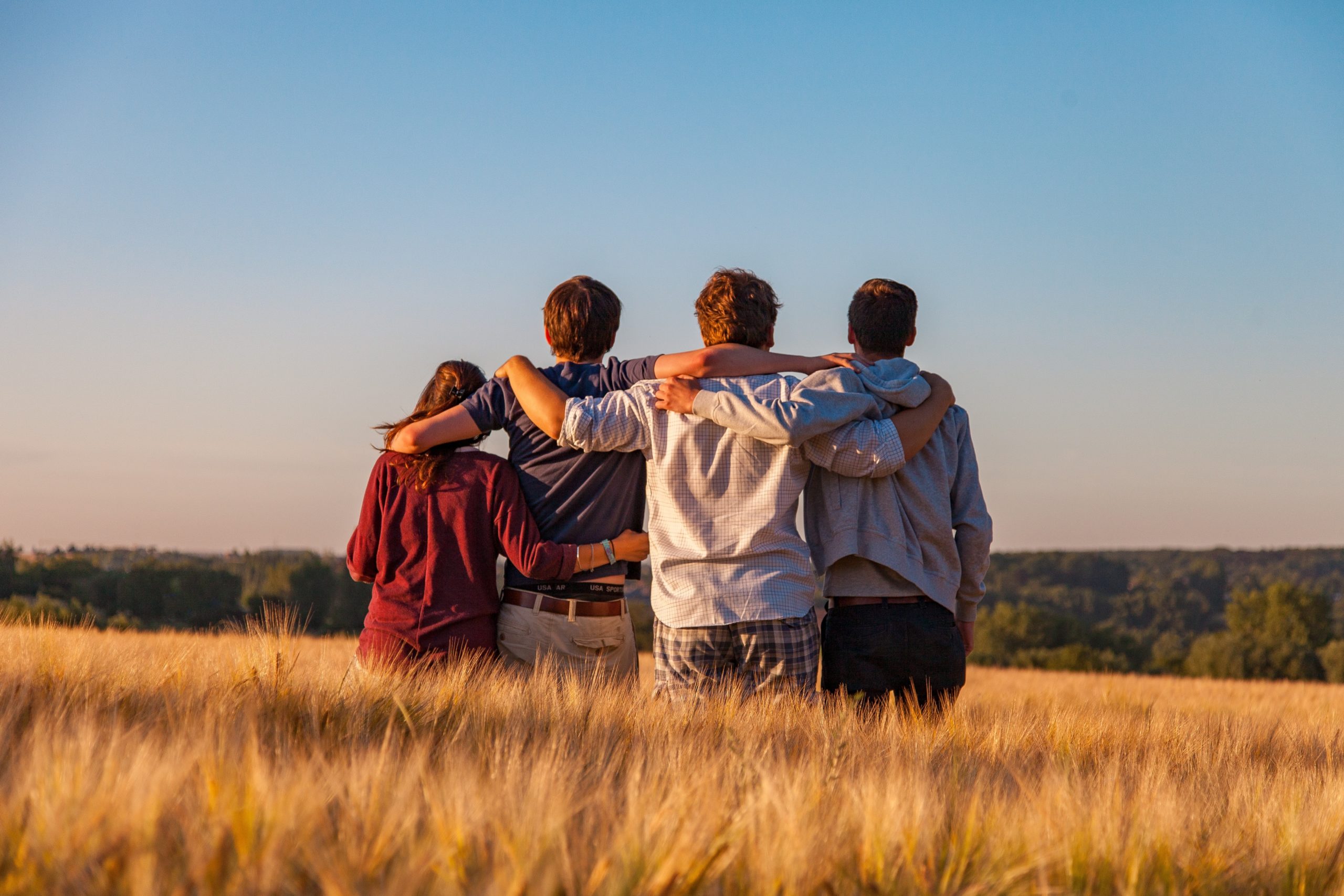
Young people are increasingly concerned about climate change, and their commitment to the environment is growing. With their future well and truly threatened by global warming, more and more of them are raising their voices, and their movements are proliferating. So are they the ones who will save our planet?
Why do we ask this question ? For one thing, young people count. According to the United Nations, they represent 15.5% of the world’s population: 15-24 year-olds number 1.2 billion. The United Nations Framework Convention on Climate Change (UNFCCC) recognizes their essential role in the fight against climate change and facilitates their involvement with its program
Action for Climate Empowerment
.
Secondly, they are increasingly concerned about the climate crisis and convinced of the reality and seriousness of global warming and its threats, which are well established by the Paris Agreements. According to
a study by the
Center de Recherche pour l’Étude et l’Observation des Conditions de Vie
(Crédoc) in December 2019, the environment tops the list of concerns for 18-30 year-olds with 32%. On the other hand, their commitment is growing : 12% of 18-24 year-olds took part in the activities of an environmental association in 2019, compared with 3% in 2016.
” There are more and more humans on the planet and the Earth is shrinking. I wonder how we’ll manage to live at 15 billion with thousands of km2 less ? It makes me anxious for future generations… “
confided Raphaël Heurtier, a 14-year-old student in 11
ème
at Collège Saint Louis in Geneva, who is taking part in the
Young Reporters for the Environment
(JRE) pilot project organized for the first time in Switzerland by the J’aime ma Planète association. A program created in 1994 by the
Foundation for Environmental Education
(FEE), the world’s largest network for environmental education and sustainable development, to raise awareness among young people (aged 12-18) of local sustainable development issues. Awaken and engage them…
Julia Steinberger, Professor at the Institute of Geography and Sustainability at the University of Lausanne, specialist in societal issues related to the effects of climate change :
“What distinguishes young people today is that they find themselves in a desperate position. They realize, as they listen to the climate experts, that everything is at stake right now if we are to have any chance of limiting global warming… This is a generation that feels betrayed, realizes that those who tried to prevent the disaster were not listened to, and therefore that we need to change our mode of action.”
Finally, their generation understands that power is at stake, and that stable, decent living conditions depend on it. Their actions and movements are helping to make global warming a political issue, and to put pressure on governments and, more broadly, on those responsible for the various aspects of society. Bruno Jochum, founder of the
Climate Action Accelerator
and former director of Médecins sans Frontières :
“Young people have become a useful pressure group that now exerts influence on electoral systems.”
What means are young people using ? Young people know that they have to change things very quickly, because they’re up against the wall. Since they don’t have the time to do this in the traditional way, they need to be creative and strategic to move climate issues up the political agenda.
Direct actions : demonstrations or non-violent direct actions such as the seizure of Place Fédérale in September 2020 or the occupation of Mormont Hill against cement manufacturer Holcim.
Climate Strikes : in Switzerland, the Climate Strike movement began in 2019, and their Climate Plan, presented at the end of 2020, is much more substantial and detailed than that of parliamentarians. Steinberger :
“They refuse to be taken advantage of politically, and it is they who invite experts to join their working group. They’re very organized, and while they don’t always agree on every point, their Climate Plan is very impressive.”
–Information and electoral participation: they get the debate across to the population through communication, but also through positions that show that Switzerland could have much greater ambitions. They are also getting involved at electoral level in relation to the CO2 law, which they find inadequate. They are active in decision-making processes at both cantonal and federal level.
Civil disobedience : some activists, like those of
Breakfree Switzerland
with Credit Suisse in November 2018, have occupied banks to denounce their investments in fossil fuels. Based on the opinion of the experts present, the judges twice acquitted them on the grounds that their action was justified in view of the climate emergency.
What is the impact of their commitment ? The actions of young people can be interpreted on several levels :
Immediate : by putting pressure on government officials and forcing them to make these issues an election issue. Steinberger :
“It’s very hard for a politician to ignore them, to say ” my generation and I are going to profit, waste, pollute a lot and destroy your life chances “. This is an unacceptable posture for someone in a position of power. “
The young people show great moral strength, but also a great deal of creativity. The
Sunrise movement
in the United States -young university students in their twenties-, formed after Trump’s election, helped change the country’s climate agenda in less than four years. They played a key role in swaying Joe Biden’s climate plan by using direct action, occupying politicians’ offices and organizing highly specialized events : creative, intelligent and strategic action.
Medium and long term : these are generations who will themselves gradually take on responsibilities and push from within to accelerate change and question accountability, the end of impunity and the future of institutions. Jochum :
“This raises the question of equity between generations. This forces those currently in charge to question their accountability to future generations. This may even raise questions of justice in the long term. It’s not at all out of the question that, in 20 years’ time, certain inactions or actions that endangered future generations could be called into question. More seriously, will political institutions that knew what was going to happen and failed to avoid extremely damaging trajectories remain legitimate?”
Time is running out. Young people face the massive challenge of transforming today’s societies without any chance of traditional power. So will hope come from youth ? For things to change, they have to become political and public issues. But beware, ” they are not the ones with the decision-making levers. People in power at any level must not be allowed to think that they are not responsible, ” warns Jochum.
Indeed, our current emissions are those that will determine the climate in 2040 : there is a time lag between our emissions and their impact. The experts are adamant – ” climate change is continuing its inexorable advance, ” according to the latest report published by the WMO on April 19 – that we will not escape 1.5° warming, and may even reach 2.5 or even 3°, a scenario with serious consequences. Jochum :
” So this idea that the younger generation will change things is dangerous, because we don’t have time to wait for them to come to power. It’s those in power today who have to change things and drive the radical transformation that’s needed.”
All the more so as we shouldn’t lend young people excessive moral virtues. There is no such thing as a virtuous generation on the one hand, and a generation with no conscience on the other. According to Crédoc, young people’s everyday behavior is no more environmentally friendly than that of their elders. Even fewer sort their waste, buy local, seasonal vegetables or reduce their electricity consumption.
More insidious than climate denial – which is becoming increasingly difficult to substantiate in the face of clear evidence of the effects of global warming – is a discourse in which companies and politicians resistant to change cite reasons for not taking immediate action .
Discourses of delay
. More sophisticated, they have not escaped the notice of experts or young people, who have developed their own tools for decoding who says what and why. From
caricatures
that spare no one, as if to remind us that, if there is hope, it will be collective, and that change must come without delay.

